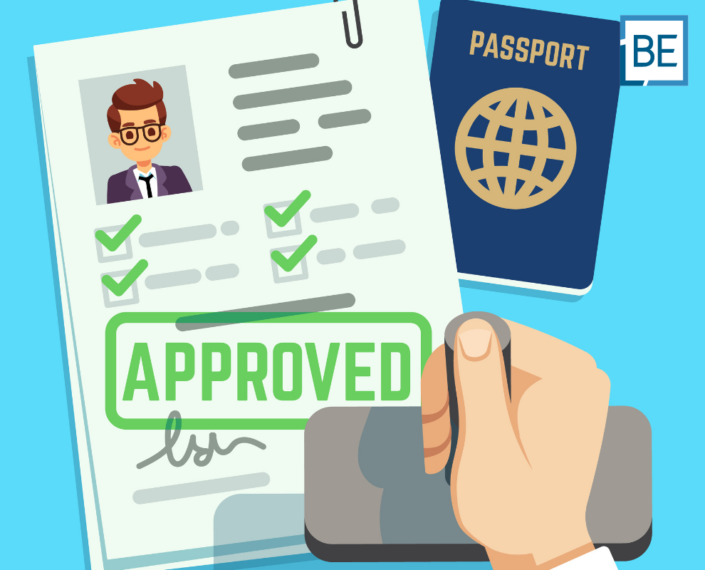Belaws Home ›› Thailand ›› Blog ›› Retail Goldmine: Discover the Ins and Outs of Opening a Shop in Thailand and Reaping the Rewards
Legal
Retail Goldmine: Discover the ins and outs of opening a shop in Thailand and reaping the rewards
23/01/2023
Opening a shop or starting a retail business in Thailand can involve various legal and regulatory considerations. The Foreign Business Act restricts this activity for foreigners, meaning 100% foreign ownership is generally not possible.
In this article, we take a look at what is required for a foreigner to be able to open and operate a shop or retail business in Thailand.
Key points
- Foreigners cannot 100% own a retail business in Thailand as specified by the Foreign Business Act (with two notable exceptions: a minimum capital of 100 million THB or a foreign business license).
- A Thai company with at least one Thai partner (who owns > 50% of the shares) must be used.
- Retail businesses require business licenses/certificates to operate legally.
- In practice, leases with a 3-year term (with the option to renew) are the most common for retail businesses. Register the lease with the land office to secure a longer term.
What is the process for opening a retail business in Thailand?
Here are some general steps you may need to follow to start a retail business in Thailand:
- Choose a business structure: You will need to decide on the legal structure of your business, such as whether to operate as a sole proprietorship, partnership, or limited company.
- Register your business: You will need to register your business with the relevant authorities, such as the Department of Business Development (DBD) and the Revenue Department. This will require obtaining a business registration certificate and tax identification number.
- Obtain any necessary licenses and permits: Depending on the nature of your business, you may need to obtain various licenses and permits, such as a food handling license if you are selling food products.
- Lease or purchase a retail space: You will need to find a suitable location for your retail business, which may involve leasing a storefront or purchasing a retail space.
- Set up your business: This may involve purchasing equipment, hiring employees, and setting up your inventory and accounting systems.
Can a foreigner 100% own a retail business?
The Foreign Business Act regulates foreign-owned retail companies in Thailand. According to the Foreign Business Act, if you are looking to open a retail business in Thailand, you must obtain a Foreign Business License. These Licenses are issued entirely by the Director-General of the Department of Business Development in Thailand under the Ministry of Commerce, with the approval of the Alien Business Operations Committee.
If permission is issued, the retail business can be owned 100% by the foreign investor, and you can open the retail company in Thailand.
There is an exemption to this license requirement if the minimum registered capital of the company is 100 million THB.
The Foreign Business License in Thailand
In Thailand, a majority company owned by foreign nationals or non-Thai persons are generally restricted from undertaking specific business activities. The restricted activities are listed in the Foreign Business Act (FBA).
If the foreign entity or firm wants to operate a business that deals in one of the prohibited classes of activities, it will be required to obtain a foreign business license following the regulations of the FBA.
A foreign business license in Thailand enables foreign-owned companies to undertake such activities, which generally are restricted by the Foreign Business Act.
Please see our blog post for more information about the Foreign Business Act.
What business licenses do I need for a retail business?
Depending on the nature of your business, you may need to obtain various licenses and permits, such as a food handling license if you are selling food products or an alcohol license if you wish to sell alcohol.
We recommend you talk to one of our experts about which licenses you need, as each retail business will be subject to different requirements.
Furthermore, depending on the product, retail stores will be audited and inspected by the department of health and fire before beginning operations.
Choosing the best business structure for a retail business
A Limited Company, is the most popular form of business structure in Thailand. This is due to the flexibility offered to business owners. Foreigners can either establish a Limited Company as a joint venture with a Thai National or as a 100% foreign-owned entity (subject to the Foreign Business Act as discussed above).
Limited Liability means that the shareholder in a Thai Limited Company can only ever be liable for the capital they invested only.
As mentioned above, the Foreign Business Act limits the activities of 100% foreign-owned entities, with retail as one example. As a result, a Limited Company would need to have the majority of its shares owned by a Thai national.
While having a Thai person(s) hold a majority shareholding may seem like an issue, in practice, many foreigners operate under a majority Thai-owned company to avoid the restrictions of the Foreign Business Act. The Thai partner cannot be a nominee.
Foreigners can have control of a Thai Limited company while still adhering to the ownership requirements of the Foreign Business Act. Under the Foreign Business Act, Foreigners can have majority voting rights and control in a Thai limited company through preference shares and weighted voting rights.
Just like any other business, a retail business in Thailand must be registered with the Department of Business Development (DBD) before being allowed to operate. Our team of experts will be able to help foreign investors to gather the necessary documentation and to apply for business registration.
What type of lease should I get for my retail business?
In practice, most retail businesses will be given a 3-year lease with the option to renew for 1 or 2 further terms. The owners of such premises only offer 3-year leases because Thai law states that any lease longer than three years must be registered at the Land Office.
Registering a lease at the Land Office involves paying registration fees and a time-consuming trip to the Land Office, both of which owners are keen to avoid.
However, having a registered lease has certain advantages that may benefit a business. Firstly, registered leases can be valid for 30 years. Should the owner sell the property in the future, the lease right contained within a registered lease will be transferred to the new owner and will still be enforceable. This offers your business protection for the term of the lease.
Another issue with a non-registered lease is that after three years, you may want to renew the lease, but the owner doesn’t want to. Such a scenario depends on how the option to renew has been drafted. Usually, such a right is not guaranteed and is merely an option the owner can decline. Therefore, you risk losing your business.
Furthermore, the authorities could view back-to-back leases as trying to circumvent the regulation that states a lease with a term of longer than three years must be registered at the land office. Should this issue arise, your business would again be at unnecessary risk.
You should register the lease at the land office to protect your rights. To help smooth the process, you can offer to pay for the transfer fees on behalf of the owner, as this is usually the sticking point for the owner’s refusal to do so.
Can I hire foreign staff?
One of the most essential requirements for opening a business in Thailand is related to hiring employees. The requirements for hiring foreigners in Thailand largely depend on the structure used to incorporate the company.
Assuming the restaurant will be incorporated using the most common structure, the Thai Limited Company, the following criteria must be met to hire foreign employees.
- A ratio of 4 Thai employees per foreign employee hired is required to support a Work Permit.
- There is also a minimum capital requirement of 2 million Baht per foreign employee.
Once these requirements have been satisfied, the employee can apply for a business visa and work permit.
How can Belaws help?
You can talk directly to one of our experts for more information about how our experts can help you open a shop or start a retail business in Thailand.
This article is for information purposes only and does not constitute legal advice.
Our consultations last for a period of up to 1 hour and are conducted by expert Lawyers who are fluent in English, French and Thai.
Consultations can be hosted via WhatsApp or Video Conferencing software for your convenience. A consultation with one of our legal experts is undoubtedly the best way to get all the information you need and answer any questions you may have about your new business or project.
USD 150
Up to 1 hour
Online payment (Paypal or Credit card)
Legal consultation can be conducted in English, French or Thai
Legal consultations are handled by experienced lawyers from the relevant fields of practice
Frequently asked questions
Can a foreigner open a company in Thailand?
Yes it is possible for a foreigner to open a company in Thailand. There are also options available which allow 100% foreign owned companies as well.
How much does it cost to set up a company in Thailand?
The official fees for registering a company in Thailand are THB 7,500.
How do I start a limited company in Thailand?
- Step 1: Choose and register a company name.
- Step 2: Draft and file the Memorandum of Association.
- Step 3: Call and hold a Statutory Meeting of the shareholders
- Step 4: Register the Company with the Ministry of Commerce.
- Step 5: Register the company for Value-Added Tax (VAT) and Income Tax
Is it good to start a business in Thailand?
Thailand is an attractive option for those wishing to start a business. Thailand has a great infrastructure in place and scheme such as the BOI provide great incentives for companies to take advantage of.
How much money do you need to start a business in Thailand?
Typically, it costs between THB 40,000 to THB 60,000 (excluding VAT and Government fees) to start a business in Thailand.The official fees for registering a company in Thailand are THB 7,500.
How can a foreigner start a small business in Thailand?
Yes, foreigners can start a business in Thailand. However, certain business activities are restricted by the Foreign Business Act and in order for businesses to undertake them they must obtain a Foreign Business Licence/Certificate which can be time consuming and complicated.
What is the biggest problem in Thailand?
The biggest problem facing foreign owned companies is being able to undertake their desired business activity as a 100% foreign owned company. Many business activities are protected by the Foreign Business Act and in order for a company to operate in these protected industries, they will be required to be majority owned by Thai Shareholders (unless a BOI promotion has been obtained).
Why is it hard to do business in Thailand?
The Foreign Business Act limits to the business activities a 100% foreign owned company can undertake. This means Thai Shareholders will need to be sought or a BOI promotion obtained in order for a company to legally operate.
Can I own a company in Thailand?
Yes, foreigners can start a business in Thailand. However, certain business activities are restricted by the Foreign Business Act and in order for businesses to undertake them they must obtain a Foreign Business Licence/Certificate which can be time consuming and complicated.
Related articles
Subscribe today
Subscribe today
To our newsletter for all the latest legal news
in South East Asia, Belaws updates and
special promotions on our services.
To our newsletter today for all the latest legal news in South East Asia,
Belaws updates and special promotions on our services.







